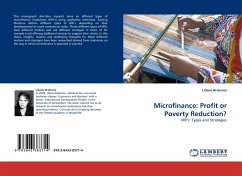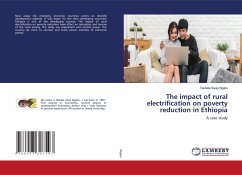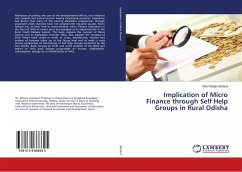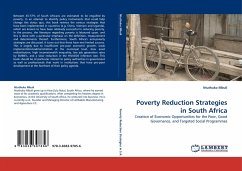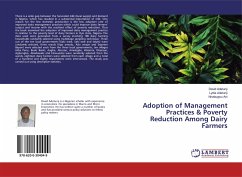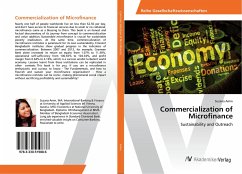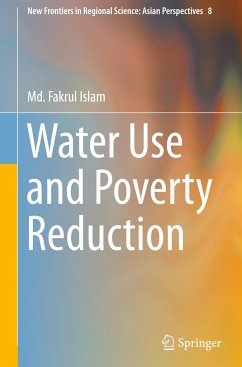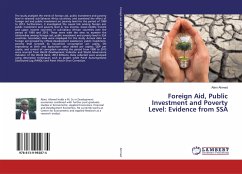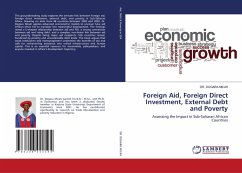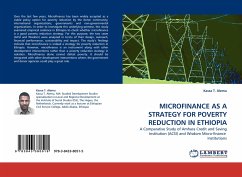
MICROFINANCE AS A STRATEGY FOR POVERTY REDUCTION IN ETHIOPIA
A Comparative Study of Amhara Credit and Saving Institution (ACSI) and Wisdom Micro-finance Institutions
Versandkostenfrei!
Versandfertig in 6-10 Tagen
32,99 €
inkl. MwSt.

PAYBACK Punkte
16 °P sammeln!
Over the last few years, Microfinance has been widely accepted as a viable policy option for poverty reduction by the donor community, international organizations, governments and non-governmental organizations. In order to investigate this underlying premise, this study examined empirical evidence in Ethiopia to check whether microfinance is a good poverty reduction strategy. For this purpose, the two cases (ACSI and Wisdom) were analyzed in terms of their design, outreach, financial performance, sustainability and impact. The study's findings indicate that microfinance is indeed a strategy f...
Over the last few years, Microfinance has been widely accepted as a viable policy option for poverty reduction by the donor community, international organizations, governments and non-governmental organizations. In order to investigate this underlying premise, this study examined empirical evidence in Ethiopia to check whether microfinance is a good poverty reduction strategy. For this purpose, the two cases (ACSI and Wisdom) were analyzed in terms of their design, outreach, financial performance, sustainability and impact. The study's findings indicate that microfinance is indeed a strategy for poverty reduction in Ethiopia. However, microfinance is an instrument along with other development interventions rather than a poverty reduction strategy in isolation. Microfinance alone cannot defeat poverty. It should be integrated with other development interventions where, the government and donor agencies could play a great role.



